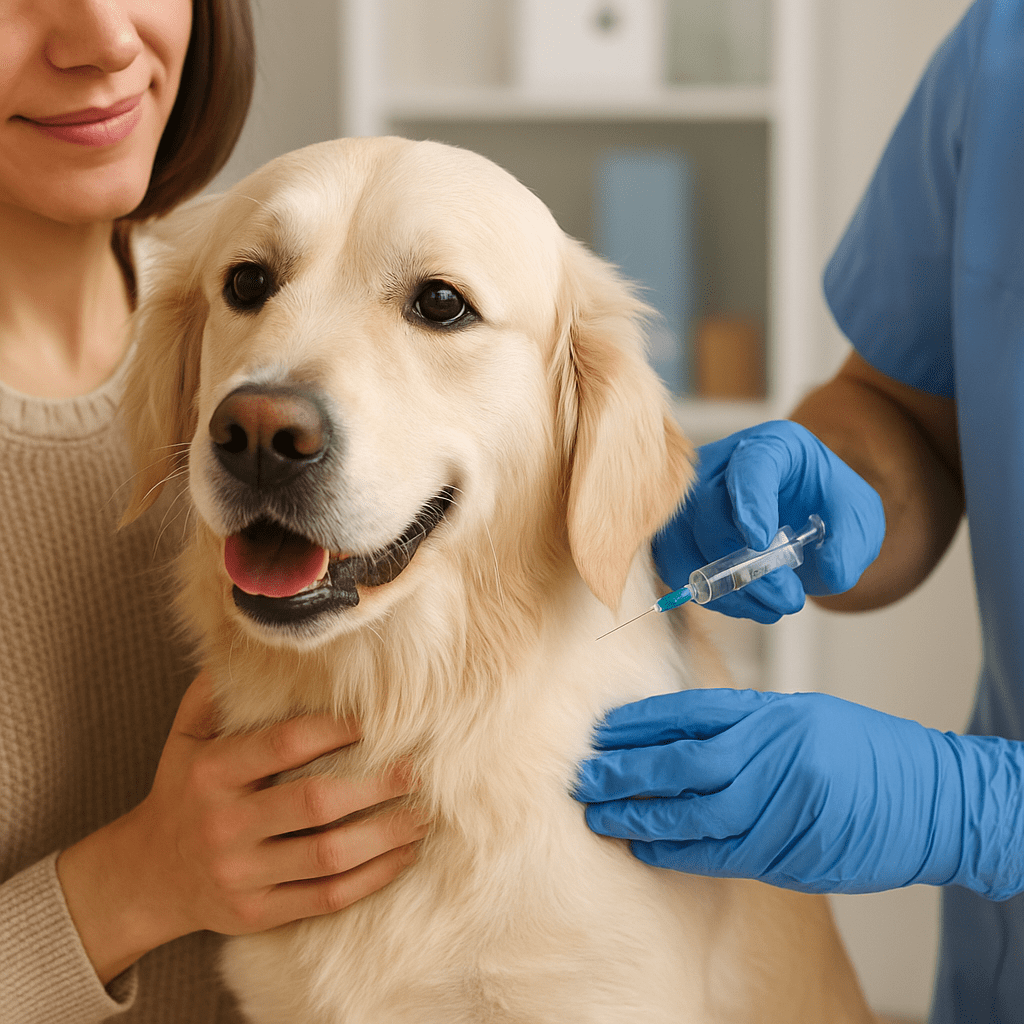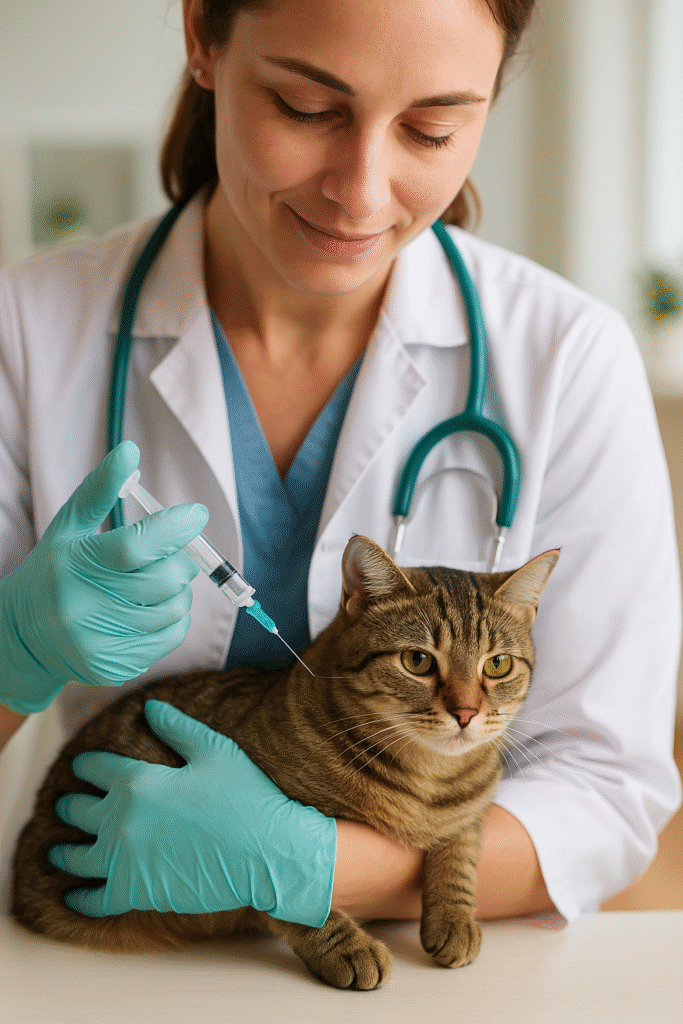Pet Vaccines: Essential Guide
Vaccination is one of the most important aspects of preventive health care for both dogs and cats. Just as humans rely on vaccines to protect against dangerous diseases, our pets also benefit from timely immunization. Whether you are a new pet parent or an experienced one, understanding the core vaccines, optional vaccines, and the recommended schedules is vital to ensure a long, healthy life for your furry companion.

Why Pet Vaccines Are Important
Vaccines prepare your pet’s immune system to fight off harmful viruses and bacteria before they cause illness. Without vaccines, dogs and cats are vulnerable to diseases that can be fatal or highly contagious. For example, parvovirus in dogs and panleukopenia in cats can spread quickly and have high mortality rates. Vaccination reduces these risks dramatically, protecting both your pet and the community of animals around them.
Core vs. Non-Core Vaccines
Veterinarians generally divide vaccines into two categories: core and non-core.
Core Vaccines for Dogs
- Rabies: Protects against a fatal virus transmissible to humans.
- Distemper: Prevents a contagious viral illness causing respiratory and neurological problems.
- Parvovirus: Shields puppies and adult dogs from a highly fatal gastrointestinal disease.
- Adenovirus (Hepatitis): Protects the liver and respiratory system.
Core Vaccines for Cats
- Rabies: Required in many regions by law and essential for safety.
- Feline Panleukopenia (Distemper): A deadly virus affecting kittens and cats.
- Feline Calicivirus: Causes oral ulcers and respiratory issues.
- Feline Herpesvirus (Rhinotracheitis): A major cause of feline upper respiratory infections.
Non-Core Vaccines
These are recommended based on lifestyle, geographic location, and exposure risks:
- Dogs: Bordetella (kennel cough), Lyme disease, canine influenza.
- Cats: Feline leukemia virus (FeLV), chlamydia, Bordetella.
Recommended Vaccination Schedule
Puppies
Puppies should begin vaccinations at 6–8 weeks of age, with boosters every 3–4 weeks until they are 16 weeks old. Core vaccines such as DHPP (Distemper, Hepatitis, Parvovirus, Parainfluenza) and rabies are included.
Kittens
Kittens typically start at 6–8 weeks, with boosters until 16 weeks. Core vaccines include the FVRCP (Feline Viral Rhinotracheitis, Calicivirus, Panleukopenia) and rabies.
Adult Pets
Once the initial series is complete, most adult dogs and cats need boosters every 1–3 years depending on the vaccine type, local laws, and veterinarian guidance.
Potential Side Effects
Most vaccines are safe, but mild reactions such as soreness at the injection site, fatigue, or a slight fever may occur. Severe reactions are rare, but watch for facial swelling, vomiting, or difficulty breathing and contact a vet immediately if these appear.

FAQs About Pet Vaccination
1. Are vaccines really necessary for indoor-only cats?
Yes. Even indoor cats can be exposed through open windows, trips to the vet, or human carriers. Rabies vaccination is often legally required regardless of lifestyle.
2. Can vaccines make my pet sick?
In rare cases, mild illness occurs after vaccination, but the benefits far outweigh the risks. Serious illness from preventable diseases is far more dangerous than the minimal side effects of vaccines.
3. What if I adopt an older pet with no vaccine history?
Older pets can still be vaccinated. A veterinarian will recommend a catch-up schedule based on your pet’s health condition.
Conclusion
Vaccines are essential for giving pets a long, healthy life. They protect against dangerous diseases, prevent outbreaks, and provide peace of mind for owners. Whether you are raising a puppy, a kitten, or adopting an adult rescue, don’t skip vaccinations. Always consult your veterinarian for a tailored schedule, and combine vaccination with regular checkups for comprehensive preventive care.
👉 Related reading: Pet Dental Care: Why Oral Health Is Essential for Dogs and Cats


핑백: Best Dog Joint Supplements: Glucosamine, Chondroitin & Natural Options